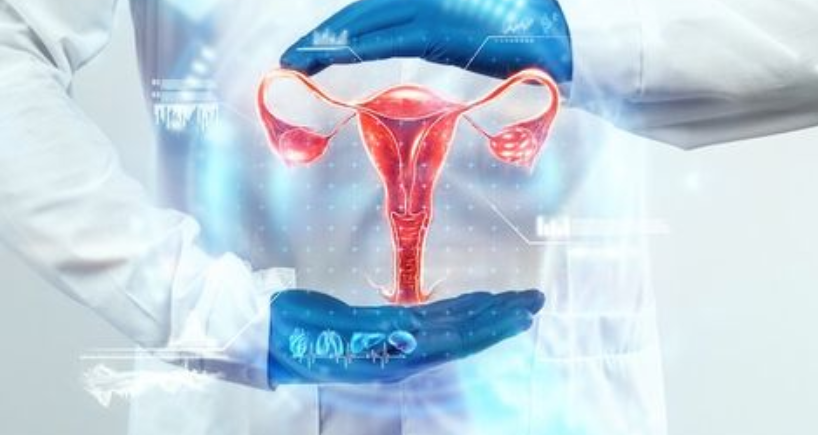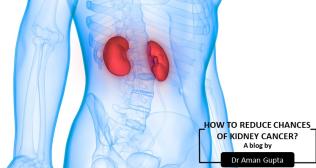
10 Simple Steps to Help Prevent Uterine Cancer
One of the most amazing things in this world is when a mother gives birth to a child. Have you ever wondered how a mother gives birth to a life and where the baby develops? It is in the uterus of the mother where a baby develops. The uterus is the organ of the female reproductive system where a baby develops. It is also known as the womb. It is located between the bladder and the rectum, above the vagina. Multiple ligaments hold the uterus in position inside the pelvis. The organs such as the uterus, ovaries, Fallopian tubes and vagina comprise the female reproductive system. So, when abnormal cells in the uterus multiply and grow uncontrollably, it develops a condition called uterine cancer.
Uterine cancer
The uterine wall comprises three layers: The endometrium, the myometrium and the perimetrium layer. Uterine cancer develops in these layers of the uterus. There are two main kinds of uterine cancer, which are,
- Endometrial cancer: It begins at the endometrium layer. This layer is responsible for the menstrual cycle. Hormones known as oestrogen and progesterone cause the endometrium layer to thicken during pregnancy. When no pregnancy occurs, the body produces less progesterone, where the endometrium layer is shed. That’s when the menstrual cycle begins. When the cells in the endometrium layer start multiplying uncontrollably, it leads to endometrial cancer. It causes irregular vaginal bleeding.
- Uterine sarcoma: It is a kind of uterine cancer which is developed in the myometrium layer of the uterus. These cancers are a rare type.
Symptoms of uterine cancer
Uterine cancer symptoms can mimic numerous other illnesses. This is particularly valid for various disorders that impact the reproductive system. Some common uterine cancer symptoms include:
- Vaginal bleeding
- Vaginal bleeding spotting after menopause
- Lower abdominal pain
- White vaginal discharge
- Extremely prolonged bleeding during menstruation
Causes of uterine cancer
The cells in the uterus undergo mutations, where they grow and multiply out of control, which then form a mass known as a tumour. The abnormal cells then spread across the entire uterus and to the other organs in the reproductive system, causing cancer.
Treatments
The treatments for uterine cancer involve,
- Hormone therapy: It is a method of treating uterine cancer by blocking certain hormones in the uterus, which slows the growth of cancer cells.
- Laparoscopy: In this method, the surgeon places a laparoscope through a small incision in the abdomen, performs staging biopsies and removes tumours.
- Chemotherapy: It uses drugs that kill or slow the growth of cancer-causing cells. These are given intravenously or orally. It is a combination of multiple medications given to stop cancer cells from developing. It can be given before or after surgery or combined with other treatments like immunotherapy or radiation therapy.
- Targeted therapy: It is given to destroy only the cancerous cells without harming healthy cells in the process. In some cases, cells undergo specific mutations that lead to cancer growth. Specialised drugs target only these mutations, slow down or destroy cancer cells and keep tumours from creating new blood vessels.
- Immune therapy: This therapy is mainly administered to increase the strength of the immune system to fight against cancer. Your body usually recognises damaged or harmful cells and destroys those types of cells. Immunotherapy helps your immune system detect and fight against cancer cells.
10 simple steps to help prevent uterine cancer
- Avoid having tobacco and smoking.
- Eat healthy, nutritious food like fruits, vegetables, dairy products, lentils, cereals, nuts, etc.
- Maintain a healthy weight and avoid being overweight or obese.
- Be physically active and do regular physical exercises.
- Avoid stress and anxiety.
- Do meditations and maintain mental health.
- Avoid eating junk foods.
- Protect yourself from too much sun exposure. Wear a protective shield like sunscreen.
- Protect yourself from sexually transmitted infections.
- Maintain vaginal hygiene, especially during menstruation.
Conclusion
To conclude, uterine cancer is developed in the uterus, where a foetus is developed during the pregnancy of a mother. There are different types of uterine cancer. Among them, endometrium cancer is most commonly seen. Most often, uterine cancer develops after menopause. As it is a serious condition, there are treatments and preventive methods to cure the disease.



















